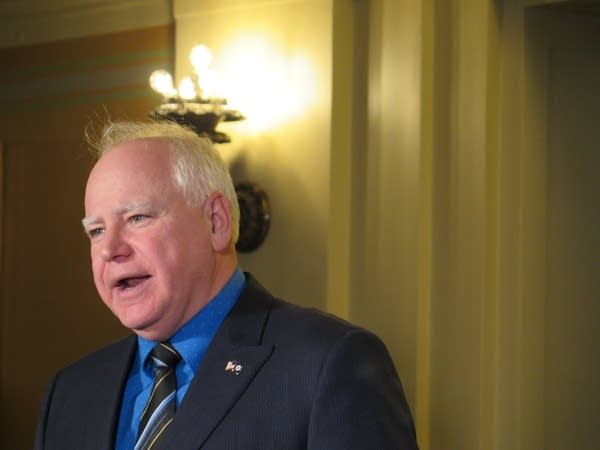Still no deal at State Capitol to prevent business tax increases

Go Deeper.
Create an account or log in to save stories.
Like this?
Thanks for liking this story! We have added it to a list of your favorite stories.
Updated: 6 p.m.
There’s still no agreement on replenishing the state’s unemployment insurance trust fund and repaying money owed to the federal government.
DFL Gov. Tim Walz and top House and Senate leaders met again Monday to try to reach a deal. State officials insist that Tuesday is the deadline to act to avoid tax increases on employers.
Walz said he believes the state can address unemployment and the front-line worker pay that House Democrats want.
“We need deadlines. We need to know that at some point in time you need to make a decision,” Walz said. “It may not be 100 percent accepted. It may not be 100 percent exactly what you wanted. But it’s a decision that works for the people of Minnesota and move forward.”
Learn how to have civil, political conversations with our e-book Talking Sense
Political debates with family or friends can get heated. But what if there was a way to handle them better?
Download our free e-book, "Talking Sense: Have Hard Political Conversations, Better," and learn how to talk without the tension.
Minnesota’s high unemployment rate and benefit payout during the COVID-19 pandemic drained the trust fund. State officials were forced to borrow from the feds.
The Minnesota Department of Employment and Economic Development has repeatedly said the deadline is Tuesday to take action and avoid tax increases on businesses.
DEED Commissioner Steve Grove told members of the House workforce committee Monday that time is critical.
“As of tomorrow [Tuesday] this gets a lot harder to unwind, and time is of the essence on this piece,” Grove said.
The House turned back a last-gasp attempt later Monday to force a vote on a fix-it bill.
Three Democrats joined a united Republican front in pressing for the action, but it failed to muster enough votes.
Democrats continued to argue that employers have more time to submit payment. Republicans said businesses can't easily delay their tax payments and that higher assessment would create a hardship for smaller businesses in particular.
The stalemate on unemployment could get in the way of other issues. Walz said there are other important things to do this session, including education funding.
“I worry about that,” Walz said, adding that he will meet with leaders again Tuesday.




